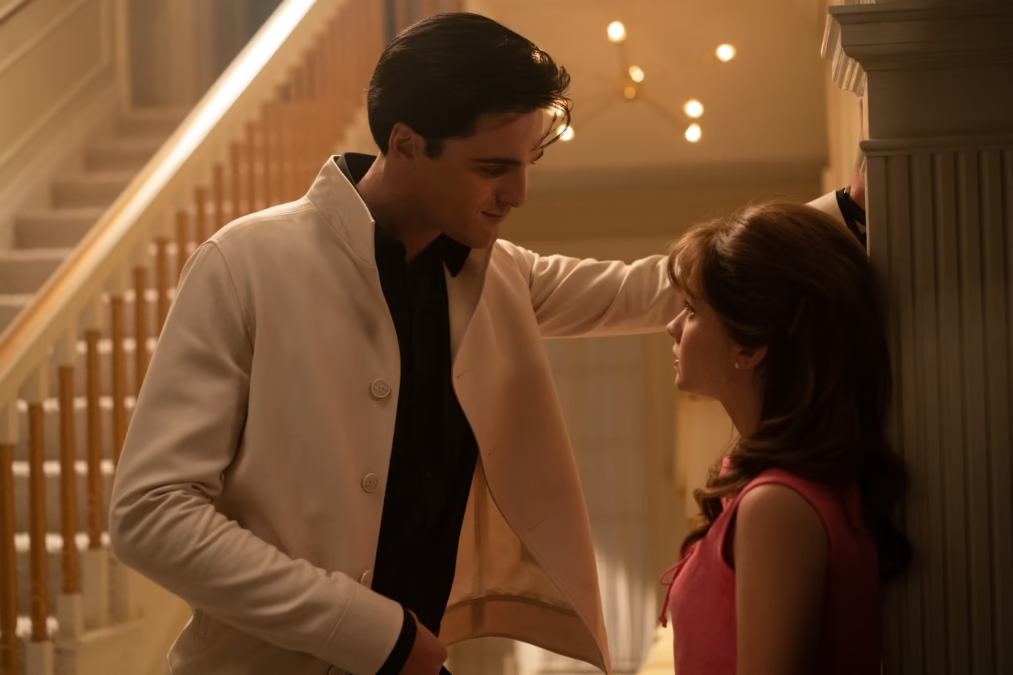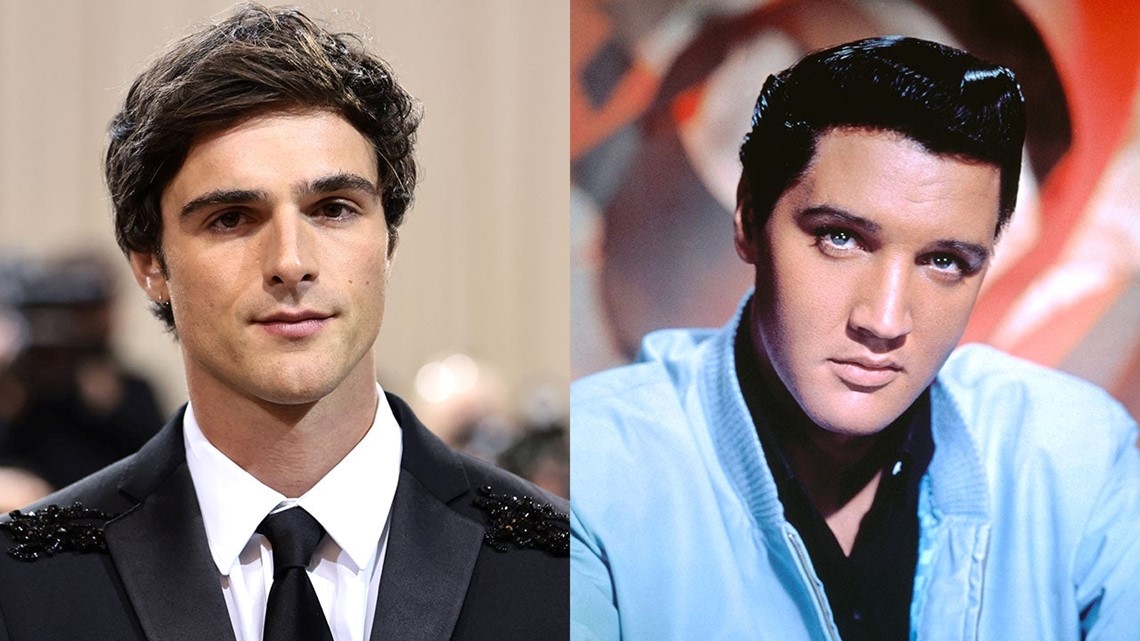In the ever-evolving world of film, few roles carry the weight, legacy, and cultural significance of Elvis Presley. When Australian actor Jacob Elordi Elvis was announced as the star of Baz Luhrmann’s highly anticipated Elvis Presley biopic, fans and critics alike buzzed with curiosity and excitement. How would a 26-year-old actor known for his work in Euphoria and The Goldfinch tackle the mantle of the “King of Rock ‘n’ Roll”? This article dives deep into Elordi’s preparation, the film’s creative vision, and why this role could redefine his career—while exploring how it resonates with modern audiences.
Jacob Elordi: From Australian Heartthrob to Global Star
Before delving into his Elvis portrayal, it’s essential to understand Jacob Elordi Elvis journey to this moment. Born in Brisbane, Australia, Elordi gained early fame as a teen idol through roles in Australian TV series like Neighbors (2011–2013). His breakthrough came with the HBO series Euphoria (2019–present), where his portrayal of the enigmatic, troubled Nate Jacobs showcased his range as an actor.
Elordi’s physical charisma—coupled with a knack for blending vulnerability and intensity—made him a sought-after name in Hollywood. Films like The Goldfinch (2019) and The Kissing Booth trilogy cemented his status as a leading man. However, taking on Elvis Presley is a career-defining leap. Luhrmann’s film, slated for release in 2025, promises to be a grand, immersive experience, and Elordi’s casting signals a bold bet on his talent.
The Challenge: Channeling Elvis Presley
Portraying Jacob Elordi Elvis Presley isn’t merely acting; it’s embodying a cultural icon whose influence spans music, film, and fashion. Previous actors like Elvis Presley himself (in Loving You, 1957), Kurt Russell (Elvis, 1979), and most recently Austin Butler (Elvis, 2022) have faced the Herculean task of capturing the King’s essence. Butler’s Academy Award-nominated performance set a high bar, but Elordi approaches the role with a fresh perspective.
Training and Transformation
- Physical Metamorphosis:
Elvis was known for his dynamic physique, evolving from the lean rocker of the 1950s to the fuller-figured icon of the 1970s. Elordi will need to undergo a significant physical transformation. Early reports suggest he’s working with trainers to build muscle while maintaining the agility required for Elvis’s iconic dance moves. - Voice and Singing:
While Austin Butler trained for months to mimic Elvis’s vocal style, Elordi has hinted at a different approach. In a 2023 interview with Variety, he stated:
“Elvis’s voice is part of his identity, but I want to honor his emotion and rawness rather than a perfect replica. Baz [Luhrmann] wants this to feel alive, not like a documentary.”
This suggests the film may blend real singing with voiceovers, focusing on storytelling over technical perfection. - Movement and Charisma:
Elvis’s hip swings, stage presence, and magnetic charisma are unparalleled. Elordi is reportedly studying hours of Elvis’s performances, particularly his 1968 “Comeback” special, to capture his rhythmic fluidity. Dance coaches and Elvis impersonators are rumored to be part of his training regimen.
Baz Luhrmann’s Vision: A Spectacle of Sound and Style
Baz Luhrmann, the director behind Moulin Rouge! and The Great Gatsby, is known for his over-the-top, visually stunning films. His Elvis project is described as a “sensory blowout,” blending concert-film energy with narrative depth.
- Musical Ambitions: The film will reportedly feature both original songs and Elvis classics, reinterpreted through Luhrmann’s signature baroque style. Imagine “Suspicious Minds” reimagined with circus-like production numbers.
- Historical Accuracy vs. Artistic License: While Tom Hanks’ Elvis (2022) stuck closely to historical events, Luhrmann’s version may prioritize emotion over factual precision, focusing on Elvis’s artistic evolution and personal struggles.
Elordi acknowledges the pressure:
“Baz wants me to be Elvis, not just play him. It’s about channeling his spirit—the joy, the pain, the rebellion.”
Why Jacob Elordi Elvis? Analyzing the Casting Choice

Jacob Elordi Elvis casting has sparked debate. Some fans argue he lacks Butler’s physical resemblance, while others praise his ability to convey youthful exuberance—a trait Elvis embodied in his early career.
Strengths of Elordi’s Portrayal
- Relatability to Younger Audiences:
At 26, Elordi shares a similar age to Elvis when he rose to fame. This proximity could help audiences connect with Elvis’s journey from Tupelo to stardom. - Dramatic Range:
His work in Euphoria proves he can navigate complex, emotionally turbulent characters. Elvis’s life was a rollercoaster of triumph, addiction, and isolation—themes Elordi is equipped to explore. - Global Appeal:
As an Australian actor with a multicultural background, Elordi aligns with Luhrmann’s vision of Elvis as a universal symbol of rebellion and creativity.
Critics’ Concerns
- Physical Resemblance: Elvis’s distinctive features, from his curls to his jawline, are instantly recognizable. Elordi will rely on makeup and lighting to bridge this gap.
- Singing Credentials: Unlike Butler, a trained singer, Elordi’s musical background is limited. However, Luhrmann’s focus on performance over vocal mimicry may alleviate this concern.
The Cultural Impact of an Elvis Biopic in 2025
Elvis Presley died in 1977, but his legacy remains vibrant. With Graceland attracting 600,000 visitors annually and Presley’s music streaming numbers steadily rising, the timing for a new Elvis film is strategic.
Reviving Interest in Elvis’s Legacy
Luhrmann’s film could introduce Elvis’s story to Gen Z and millennial audiences who missed Butler’s 2022 portrayal. Elordi’s involvement, coupled with Luhrmann’s flair, might spark renewed interest in Presley’s recordings and filmography.
Gender and Cultural Representation
Elvis’s influence on pop culture cannot be overstated, but modern biopics also face scrutiny over representation. Elordi, as a male actor playing a male icon, won’t confront the gender dynamics of earlier Elvis films (where female fans often projected their desires onto the star). Instead, the focus will be on authentic storytelling—a welcome shift.
Jacob Elordi’s Career: Before, During, and After Elvis
This role is poised to be a career-changer for Elordi. Pre-Elvis, he was building momentum with films like The Sunny (2024), a dark comedy co-starring Daisy Edgar-Jones, and The Underdog, a sports drama. Post-Elvis, expect his stock to skyrocket.
- Awards Season Potential: A transformative role like this often garners Oscar buzz, even if Elordi isn’t a frontrunner. The Film Independent Spirit Awards or BAFTAs could recognize his effort.
- Box Office Draw: Successful biopics (think Bohemian Rhapsody or Rocketman) prove audiences crave emotional, music-driven stories. Elordi’s star power could attract diverse demographics.
- Future Projects: With Elvis behind him, Elordi could explore more dramatic roles or even produce content, leveraging his newfound influence.
Fan Reactions and Social Media Buzz
Since the casting announcement in 2023, the #JacobElordiAsElvis hashtag has garnered millions of tweets, Instagram posts, and TikTok videos. Fan theories abound:
- Outfits and Eras: Will the film cover Elvis’s iconic jumpsuits and Hollywood glamour?
- Love Stories: How will Priscilla Presley (possibly played by The Crown’s Emma Corrin) and Elordi’s chemistry be portrayed?
- Collaborations: Rumors suggest Luhrmann may cast Elordi’s Euphoria co-star Zendaya in a musical number—a dream crossover for fans.
Critics on Reddit and IMDb express cautious optimism, with many acknowledging Elordi’s talent while urging the production team to prioritize depth over glamour.
Conclusion: Jacob Elordi’s Elvis—A New Era for an Eternal Icon
Jacob Elordi’s Elvis Presley is more than a film; it’s a bridge between generations, blending reverence for a legend with the innovative flair of modern cinema. By focusing on Elvis’s humanity—his struggles, passions, and artistic fire—Elordi and Luhrmann aim to create a portrayal that feels both timeless and timely.
For Elordi, this role is a crucible. Succeeding where others have stumbled (or shined) will cement his status as more than a pretty face—he’ll be a actor of substance. For fans, it’s a chance to rediscover why Elvis Presley remains a powerhouse of inspiration nearly 50 years after his death.
As the world awaits trailers and release dates, one thing is clear: Jacob Elordi’s Elvis is set to ignite conversations, debates, and perhaps a few new fandoms. Keep your ears open for that iconic voice—because when this Elvis hits the screen, it’ll be loud, proud, and impossible to ignore.



